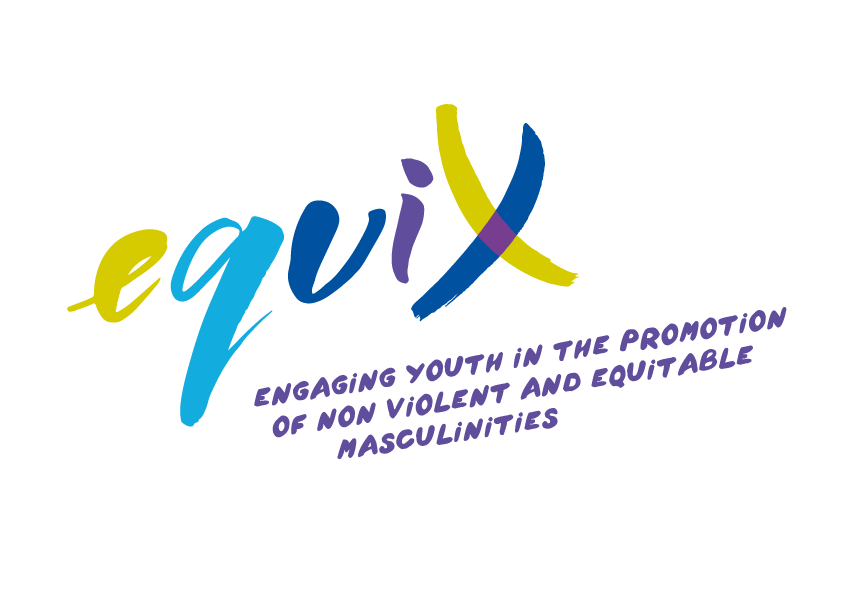Research Team
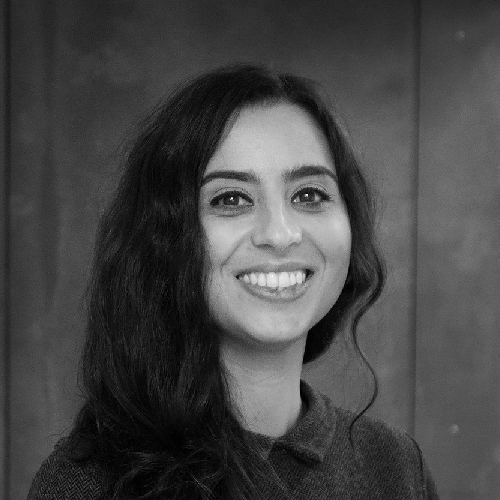
Sofia José Santos is the Principal Investigator of DeCode/M. She is an Assistant Professor at the Faculty of Economics, University of Coimbra, and researcher at the Centre for Social Studies. Since 2013 she has undertaken research on media and masculinities and coordinated online and offline campaigns on masculinities and violence prevention. She holds a PhD and an MA in International Politics and Conflict Resolution by the University of Coimbra, and a Diploma in Advanced Studies in Communication Sciences from ISCTE-IUL. Within CES, she also coordinates the ``media and masculinities`` thematic area in Promundo-Portugal, and is co-editor of Alice News, co-coordinator of NHUMEP and researcher at (De)Othering, EquiX and PARENT projects. Previously, she was a postdoctoral researcher at OBSERVARE/UAL and CES, researcher and coordinator of media and communication in Promundo-Europa, visiting scholar at the Flemish Peace Institute and Marie Curie fellow at the Universiteit Utrecht. Sofia has also undertaken research for international think tanks and development agencies such as NOREF, UKAID, Palladium, and Promundo-US. Her current research interests focus on media and masculinities; digital politics and technopolitics; and media representations and securitization.

Tatiana Moura is the Co-Principal Investigator of DeCode/M where she also facilitates the thematic area on “Fatherhood, Household Roles and Caregiving”, while actively participating in the core study. Tatiana is the General Coordinator of Promundo-Portugal. Promundo is an international NGO with offices in Brazil, USA, DRC and Portugal that works nationally and globally in engaging men and boys for gender equality. She is also a researcher at CES since 2000. She holds a PhD in Peace, Conflicts and Democracy, by the University Jaume I (Spain), a Master's degree in Sociology, by the Faculty of Economics of the University of Coimbra and a first degree in International relations, by the same Faculty. Her research interests include feminism and International Relations, new wars and urban violence, and gender and armed violence.
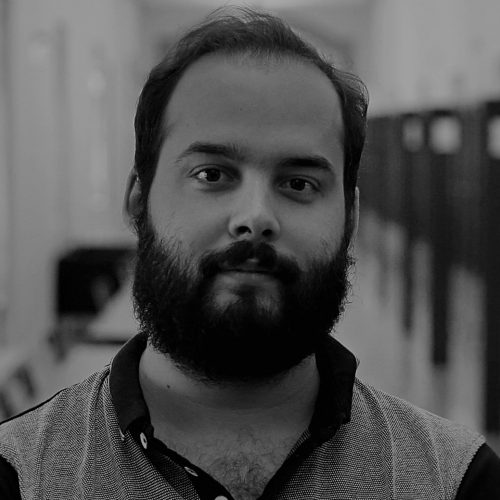
Alexandre de Sousa Carvalho is a researcher at DeCode/M, where he facilitates the thematic area “Populism and Extreme Masculinities”, and actively participates in the core study, “Me Too” and “Fatherhood, Household Roles and Caregiving”. He also contributes to the communications and outreach strategy. He has been a Guest Assistant Lecturer at the Faculty of Economics of the University of Coimbra since 2017, where he has been lecturing at undergraduate and graduate programmes in International Relations, Development, Peace and Security Studies. He is a PhD Candidate in Political Science at ISCTE-IUL in Lisbon and holds a Master’s degree in African Peace and Conflict Studies from the University of Bradford, UK, and a Bachelor’s degree in International Relations from the University of Coimbra in Portugal. Alexandre has over 10 years of combined research and consulting experience in academic research centres and think-tanks, governmental agencies and non-governmental organizations, and as a consultant or expert in over 30 reports of commissioned research for international development agencies and European Commission departments. His areas of expertise lie in peace and security, international cooperation, gender equality, foreign policy and international organizations.
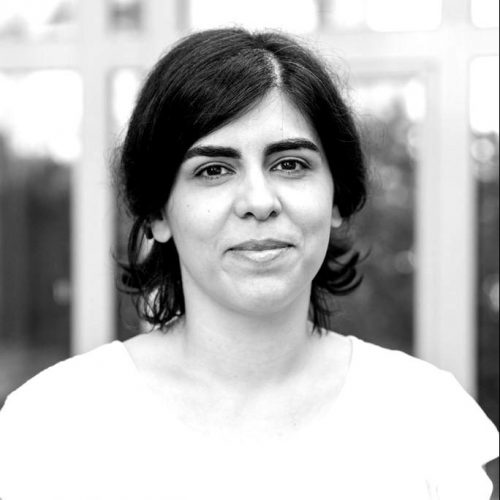
Ana Jorge is Guest Assistant Professor at Universidade Católica Portuguesa, Universidade Nova de Lisboa and Instituto Superior Miguel Torga, and researcher at CECC and CICS.NOVA. She holds a Media and Journalism Studies PhD from Universidade Nova de Lisboa, supported by a scholarship from FCT. Ana researches on children, youth and media, audiences, celebrity culture, digital culture, and she has taken part of international projects and networks as EU Kids Online, RadioActive101, COST Transforming Audiences, COST DigiLitEY. Ana’s scholarship appears in journals such as Celebrity Studies, Communications and Social Media and Society, and collections such as Childhood and Celebrity (Routledge, 2017), The Future of Audiences (Palgrave, 2018) and Celebrity and Youth (Peter Lang, 2019). She has co-edited Digital Parenting (Nordicom, 2018). She is Vice-chair of ECREA’s Digital Culture and Communication section (2016-20).

Bárbara Janiques de Carvalho is Junior Researcher at decode/M. She is a Ph.D. student in Communication Sciences at University of Coimbra (Portugal) and researcher at the Interdisciplinary Centre of Social Sciences at Nova University of Lisbon (Portugal). She received her Bachelor degree in Social Communication / Advertising, at University of Fortaleza (Brazil) and her Master degree in Communication Sciences, at University of Minho (Portugal). The research carried out in the master's degree dealt with the digital interaction of young people and their relationship with consumer culture. Bárbara interests include interactive media, media literacy, the culture of microcelebrities, children's and teenagers' forms of socialization in digital social networks. She has over 10 years of experience in the communication sector of non-governmental organizations in Brazil, dealing with press relations, event production, social media management, digital marketing and copywriting.
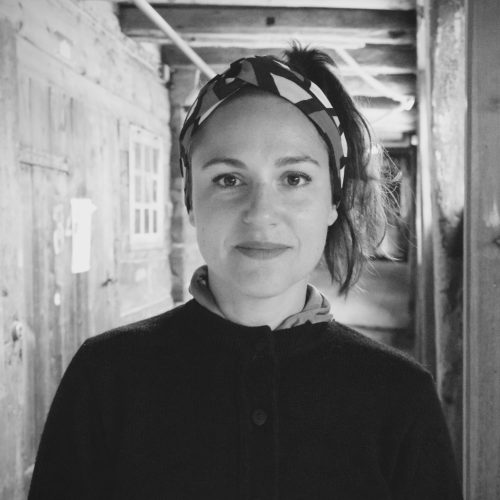
Bia is the Media and Communications Coordinator of DeCode/M, where she also facilitates the thematic area “Labour issues and professional aspirations” and actively contributes to the development of the methodology for the core study. Bia is a PhD Sociology candidate in the programme ``Labour Relations, Social Inequalities and Trade Unionism`` at the Centre For Social Studies/Faculty of Economics, University of Coimbra. Her doctoral research is funded by the Foundation for Science and Technology. She holds a Joint Major Communication and Latin American Studies from Simon Fraser University, Canada; a specialisation in Social Policy Management from Pontifícia Universidade Católica do Paraná, Brazil; and a MSc Social Policy and Development (Merit) from London School of Economics, UK. In between her academic pursuits, Bia has gained more than fifteen years of professional experience in the areas of communication and international development. Her current research interests are digital methods, social movements, and young workers.
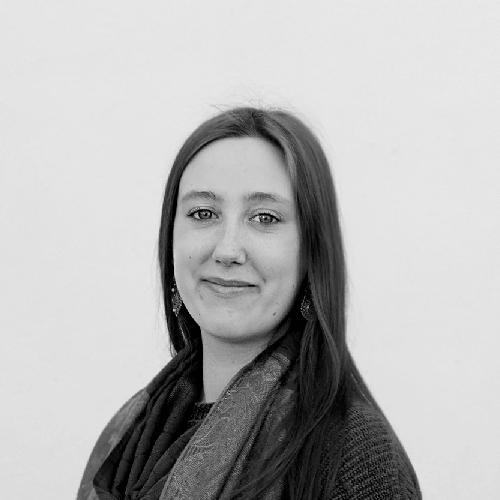
Carlota Houart is a junior researcher at DeCode/M where she facilitates the thematic area of “Environment and Climate Change” and actively participates in the core study. She also contributes to the design and implementation of the communications and outreach strategy. Carlota is an International Relations graduate by the Faculty of Economics of the University of Coimbra, and a Master's student in International Relations - Peace, Security and Development Studies at the same University. She is a junior researcher at the Humanities, Migrations and Peace Studies Group (NHUMEP) of the Center for Social Studies, University of Coimbra. Her current research interests include: international relations, peace and conflict studies with a focus on climate change and human/nature relations, gender studies and media studies.

Gary Barker is a researcher at DeCode/M where he actively participates in the thematic area of “Fatherhood, Household Roles and Caregiving”. Gary is a leading global voice in engaging men and boys in advancing gender equality and positive masculinities. He is the CEO and founder of Promundo, which has worked for 20 years in more than 40 countries. He created and leads the International Men and Gender Equality Survey (IMAGES), the largest-ever survey of men’s attitudes and behaviours related to violence, fatherhood, and gender equality. He is a co-author of the 2015 and 2017 State of the World's Fathers reports and has advised the UN, the World Bank, numerous national governments, and key international foundations and corporations on strategies to engage men and boys in promoting gender equality. In 2017 he was named by Apolitical as one of the 20 most influential people in gender policy around the world. He is an Ashoka Fellow and received the Voices of Solidarity Award from Vital Voices for his work to engage men for gender equality. He holds a PhD in Developmental Psychology.
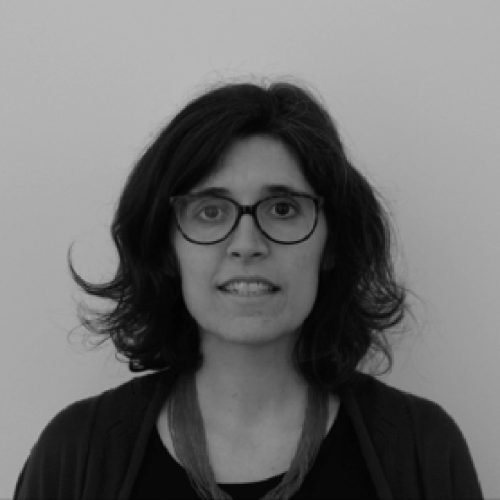
Hélia Santos is a junior researcher at CES, as well as project manager in the Project Management Office (GAGEP). She holds an MA degree in Sociology from the programme “Postcolonialisms and Global Citizenship” from the Centre for Social Studies and the School of Economics of the University of Coimbra, a taught PhD programme that she joined again in 2015 as a PhD candidate.
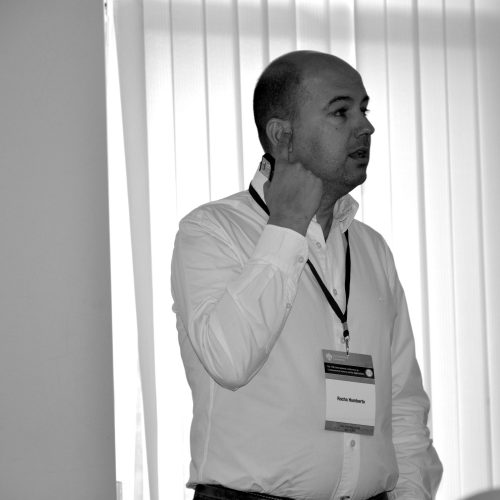
Humberto Rocha is an Assistant Professor at the Faculty of Economics of the University of
Coimbra and a researcher at the Center for Research in Economics and Management of
University of Coimbra (CeBER) and INESC-Coimbra. He holds a BSc (1998) and an MSc (2001) in Applied Mathematics from the University of Coimbra, and a PhD in Applied Mathematics (2005) from the Old Dominion University (ODU), Virginia, USA. He also holds a MsC in Medicine from the University of Minho (2015). Humberto undertakes multidisciplinary research with applications of statistical and mathematics methods on problems in different areas. He is the author and co-author of 57 articles, namely on the following scientific journals: Medical Physics, Physics in Medicine and Biology, Physica Medica, Cancer / Radiotherapie, Health and Technology, Physica A, SIAM Journal on Optimization, Applied Mathematical Modeling, Applied Mathematics and Computation, Structural and Multidisciplinary Optimization, International Transactions of Operations Research, Journal of Global Optimization, Computational Optimization and Applications, Mathematical and Computer Modeling.
Coimbra and a researcher at the Center for Research in Economics and Management of
University of Coimbra (CeBER) and INESC-Coimbra. He holds a BSc (1998) and an MSc (2001) in Applied Mathematics from the University of Coimbra, and a PhD in Applied Mathematics (2005) from the Old Dominion University (ODU), Virginia, USA. He also holds a MsC in Medicine from the University of Minho (2015). Humberto undertakes multidisciplinary research with applications of statistical and mathematics methods on problems in different areas. He is the author and co-author of 57 articles, namely on the following scientific journals: Medical Physics, Physics in Medicine and Biology, Physica Medica, Cancer / Radiotherapie, Health and Technology, Physica A, SIAM Journal on Optimization, Applied Mathematical Modeling, Applied Mathematics and Computation, Structural and Multidisciplinary Optimization, International Transactions of Operations Research, Journal of Global Optimization, Computational Optimization and Applications, Mathematical and Computer Modeling.
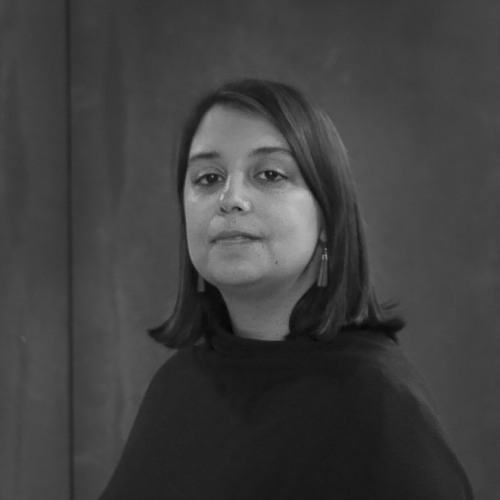
Inês Amaral is a researcher at DeCode/M, where she facilitates the thematic area of “MeToo” with a particular focus on online social media, and actively participates in the core study. She holds a PhD in Communication Sciences from the University of Minho (2012), funded by The Portuguese Foundation for Science and Technology. She is an Associate Professor at the Faculty of Arts and Humanities of the University of Coimbra and a researcher at the Communication and Society Research Centre (University of Minho). Inês lectures in the field of Digital Communication and has undertaken research on sociability in online social networks; media consumption in the digital age; social media, participation and social movements; digital inclusion and active ageing; media and digital literacy; gender and media. She was a researcher on the European projects ``Media in Action`` (2018) and ``EMEDUS - European Study on Media Literacy Education Study`` (2012-2014). She is the author of two books.

Júlia Garraio is a researcher at DeCodeM where she facilitates the thematic area of “Me Too”. Júlia is a researcher at the Center for Social Studies (Humanities, Migrations and Peace Studies). Most of her research and publications have been dedicated to German literature and culture in the 20th century, especially to the public memory of the rape of German women and girls in the context of WWII. Her recent work examines how women's experiences in wartime and political conflict are appropriated and transformed by gendered national scripts. Her current research interests include sexual violence, masculinities, feminisms, nationalism, migrations, memory, comparative literature and media. She is member and co-founder of the International Research Group Sexual Violence in Armed Conflict (SVAC) (http://www.warandgender.net).
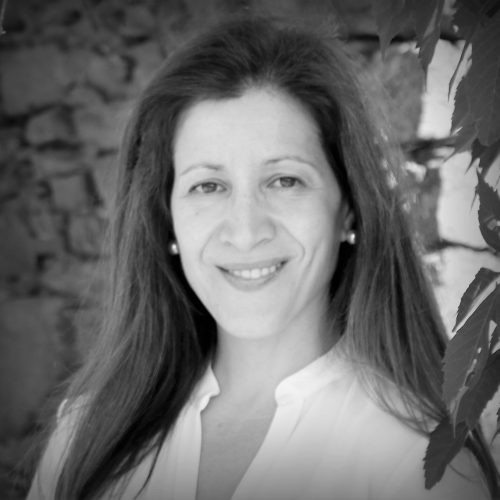
Rita Basílio de Simões has a PhD in Communication Sciences from the University of Coimbra (2011), with a thesis on the articulation of the social dynamics of crime and gender representations. She is Assistant Professor at the Faculty of Letters of the University of Coimbra, in the Department of Philosophy, Communication and Information, where she teaches Communication Sciences, with an emphasis on Journalism Studies and Communication Law. She is a researcher at the 20th Century Center for Interdisciplinary Studies (CEIS20) and has participated in national and international research projects – such as the “Gender and News Production” Project (2013-2016) and the “Global Media Monitoring Project”. (2010, 2015). Her main research areas include feminist communication and media studies, social representations of violence, crime and criminal justice, and the regulation of media and journalism, domains of most of her published scientific production.
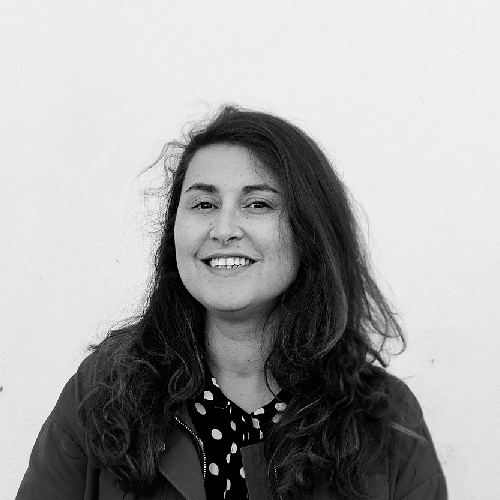
Rita Santos is a researcher at DeCode/M where she facilitates the thematic area of “Militarised Masculinities” and actively participates in the “Core longitudinal study”, “Fatherhood, Household Roles and Caregiving”, and “Gender-based violence” thematic areas. Rita is a junior researcher at the Centre for Social Studies and member of the Humanities, Migrations and Peace Studies Group. She was the editor of the on-line bulletin P@x (2008-2014), the quarterly publication of the Peace Studies Working Group (NHUMEP/CES) and the executive coordinator of OGAV/CES (2010-2014). She is a PhD candidate in ``International Politics and Conflict Resolution``, School of Economics, University of Coimbra. Holds a MA degree in Peace Studies from the Department of Peace Studies, University of Bradford, and a BsC in International Relations, School of Economics, University of Coimbra. Her current research interests include: Feminism and IR/Security Studies; violence, gender and small arms; arms control movements and demilitarisation; the agenda Women, Peace and Security; and racialised and gendered tropes in the media and political representation of migrants, refugees and ``internal others``.
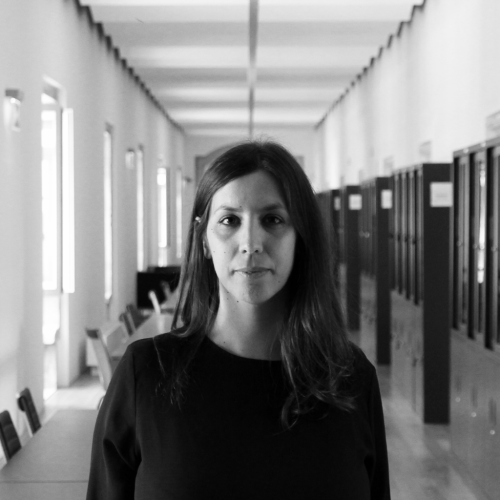
Sílvia Roque is a researcher at DeCode/M where she actively participates in the “Gender-based Violence” and “Militarised Masculinities” thematic areas. She is a researcher at the Centre for Social Studies and co-coordinator of the Humanities, Migrations and Peace Studies Group. She has a PhD in International Relations - International Politics and Conflict Resolution from the University of Coimbra. She also holds a Master’s degree in African Studies (ISCTE, Lisbon, Portugal) and a BsC in International Relations by the School of Economics of the University of Coimbra.
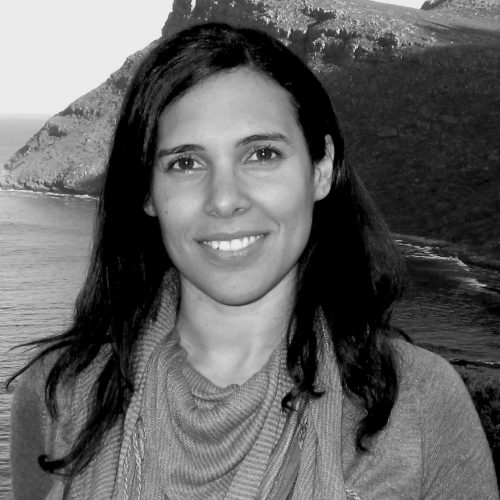
Teresa Almeida Cravo is a researcher of DeCode/M where she facilitates the thematic area of “Gender-based violence”, while actively participating in the “Core Longitudinal Study” and “Fatherhood, Household Roles and Caregiving” thematic areas. Teresa is a Researcher at the Centre for Social Studies, at the Humanities, Migration and Peace Studies Research Group, and an Assistant Professor in International Relations at the Faculty of Economics of the University of Coimbra. She is currently co-coordinator of the PhD Programme Democracy in the XXIst Century and a Visiting Fellow at the African Studies Centre of the University of Oxford. She holds a PhD from the University of Cambridge, Department of Politics and International Studies. Her research interests include peace and violence, security and development, interventionism, and foreign policy, particularly within the Lusophone context.
Consultants
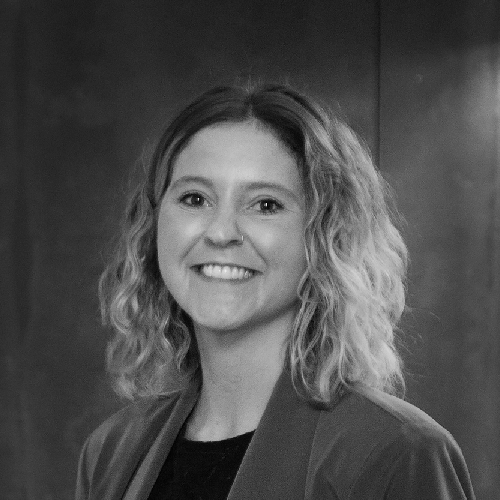
Alexa Hassink is an international programming and communications consultant for DeCode/M. She is the Director of Communications with Promundo. Alexa leads Promundo’s communications team and several key advocacy initiatives, amplifying research and programming on masculinities and gender justice to inspire action and drive impact in personal opinion, community norms, and public policy.

Carla Cerqueira is a researcher consultant for DeCode/M. She holds a PhD in Communication Sciences - specialization in Communication Psychology from the University of Minho (2012), funded by Portuguese Foundation for Science and Technology. In the last six years she was a Postdoctoral researcher in Communication Sciences at the Communication and Society Research Centre (CECS), University of Minho, Portugal; at the Department of Media, Communication and Culture, Autonomous University of Barcelona, Spain; and at the Department of Social Sciences, Erasmus University of Rotterdam, Netherlands. She is a full-time researcher at the Communication and Society Research Centre (University of Minho) and an Assistant Professor at the Lusophone University of Porto. Author of several books, book chapters and articles in scientific journals, her research interests include gender, feminisms, intersectionality, NGOs and media studies. She was vice-chair of the Gender and Communication Section of the European Communication Research and Education Association (ECREA) and Gender and Communication YECREA representative. She has participated as a researcher and consultant in several academic and social funded projects in the area of Gender Equality and Media. She is the Research & Policy Committee chair of GAMAG - Global Alliance on Media and Gender. She maintains an active involvement with diverse Portuguese non-governmental organizations that work with gender, feminisms and human rights.
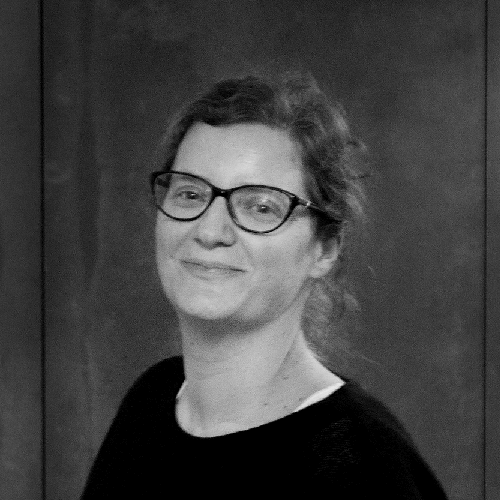
Cristina Sala is a research consultant for DeCode/M. She is a Senior Research Associate at the University of East Anglia (England) and Professor at the Institute of Peace and Development Studies (IEPC – University of Oviedo). She holds a PhD with a dissertation dedicated to “Pathways of Communications for Peace. Conceptualization, Critic Review and Proposals from the lenses of Communication towards Social Change and Conflict Transformation Theory” (University of Deusto) and an MA in Evaluation of Public Policies and Programs (Complutense University). Her current research interests include communication towards conflict transformation, decolonization of peace, restorative memory, pluriverse, evaluation of communication for social change and peace.

Jane Kato-Wallace is a research and programming consultant for DeCode/M. She is the Director of Programs at Promundo. Her experience centres on program development, training, and research related to engaging men and boys. She played a large role in the development and expansion of the global MenCare Campaign, and currently trains international partners on implementing Program P, a gender-transformative, multi-pronged approach to engaging men as caregivers.

Maria José Brites is Associate professor at the Lusófona University of Porto (ULP) and vice-president of the Centre for Research in Applied Communication, Culture, and New Technologies (CICANT). She coordinates the project Juvenile delinquency centres with digital and civic competences – DiCi-Educa (co-financing Fundação Calouste Gulbenkian). She was the Portuguese coordinator of the European project Media In Action - MIA (LC-00644630; http://mediainaction.eu) and the RadioActive project (531245-LLP-1-2012-1-UK-KA3-KA3). She concluded her PhD in Communication Sciences (2013) at the NOVA University of Lisbon and a post-doc (2014-2017) at the Communication and Society Research Centre (CECS/UMinho), both with grants from the Portuguese Foundation for Science and Technology. Her research interests include issues such as Participatory methodologies, Youth, journalism and participation, Audience studies and News and civic literacy. She started the blog https://anlitemedia.com as a way to track these issues. She has worked as a journalist in several newspapers and magazines in Portugal (press card 3182).

Marisa Torres da Silva was born in Lisbon in 1979. Since 2015 she is an Assistant Professor at Faculdade de Ciências Sociais e Humanas, Universidade Nova de Lisboa (NOVA FCSH), where she teaches since 2006. She is a member of the international projects ``Fair or Flawed: Experiments on Perceptions of Hate Speech Moderation`` (funded by Facebook - Content Policy Research on Social Media Platforms research awards) and ``Media Pluralism Monitor (MPM)``, coordinated by the Centre for Media Pluralism and Media Freedom (CMPF) and co-funded by the European Union. She is also member of the ``COST Action CA17132 - European network for argumentation and public policy analysis`` and of the national project ``PINBook PT: Political Interest Networks in Facebook Portugal``, funded by the Portuguese Science and Technology Foundation (FCT). She is Local Researcher / Focus Group Leader of the project ``New Neighbours``, coordinated by the European Broadcasting Union (EBU) and co-funded by the European Commission. She is the author and co-author of three books, eight book chapters (one of them indexed in Scopus), 21 articles in international and national peer-reviewed journals (11 of them indexed in Web of Science, Scopus or Scielo), one encyclopaedia entry (indexed in Web of Science), and around 60 papers presented in Portuguese and International conferences. She is also co-director of Media & Jornalismo journal (indexed in Scopus and Scielo) and co-editor of the online publication NOVA Magazine. She worked as a freelance journalist (2001-2009) in many Portuguese press publications.
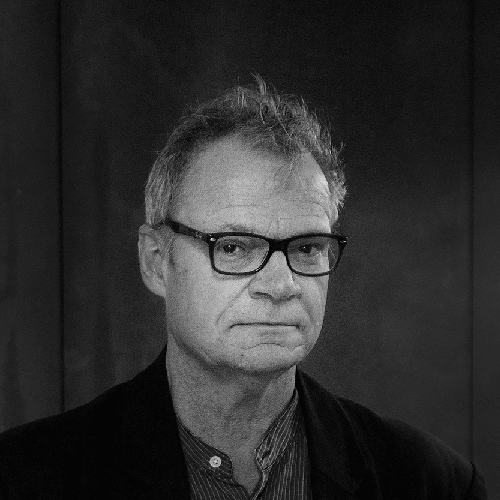
Oscar Hemer is a research consultant for DeCode/M. He is Professor of Journalistic and Literary Creation at Malmö University, writer of six novels, and literary translator from Spanish. He holds a Dr. Philos. degree in Social Anthropology from the University of Oslo (2011). His latest publications are the forthcoming monograph Contaminations & Ethnographic Fictions: Southern Crossings and the co-edited volume Conviviality at the Crossroads: The poetics and politics of everyday encounters (both Palgrave Macmillan).
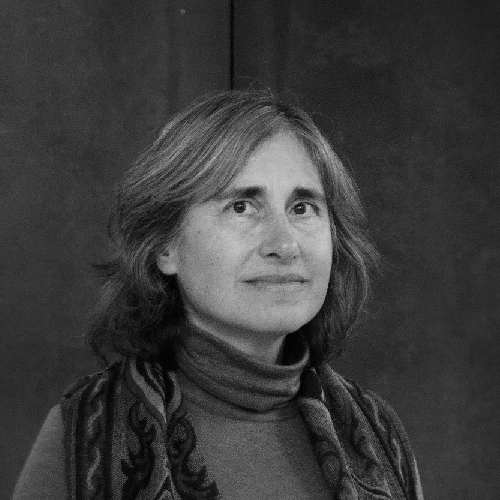
Rosa Cabecinhas is a research consultant for DeCode/M. She holds a PhD in Social Psychology of Communication and is Associate Professor at the Social Sciences Institute, University of Minho. She is former Deputy-Director of the Communication and Society Research Centre, Head of the Master degree program in Communication Sciences and Head of the Communication Sciences Department at the same University. Currently, she is Head of the PhD Program in Cultural Studies (University of Minho). Her PhD thesis, entitled ``Racism and Ethnicity in Portugal``, received the Award for the best academic research on Immigration and Ethnic Minorities by the High Commissary of Immigration and Ethnic Minorities.

Simukai Chigudu is Associate Professor of African Politics and Fellow of St Antony's College, and has been involved in the ``Rhodes must fall`` movement and the movement to decolonise western curricula. He is principally interested in the social politics of inequality in Africa, which he examines using disease, public health, violence, and social suffering as organising frameworks for both historical and contemporary case studies. He is finishing a monograph entitled The Political Life of an Epidemic: Cholera, Crisis and Citizenship in Zimbabwe, which is a study of the social and political causes and consequences of Zimbabwe’s catastrophic cholera outbreak in 2008/09, the worst in African history. He has published articles in a number of peer-reviewed scholarly journals including African Affairs (forthcoming), Global Health Governance, Health Economics, Policy and Law, the International Feminist Journal of Politics, Health Policy and Planning, Seizure: The European Journal of Epilepsy, Feminist Africa, and The Lancet. His academic background is eclectic having received training in Medicine at Newcastle University, Public Health at Imperial College London, and African Studies at the University of Oxford before completing his DPhil at ODID. He has previously worked and conducted research in Zimbabwe, Uganda, The Gambia, Tanzania and South Africa. Prior to academia, he was a medical doctor in the UK’s National Health Service where he worked for three years.
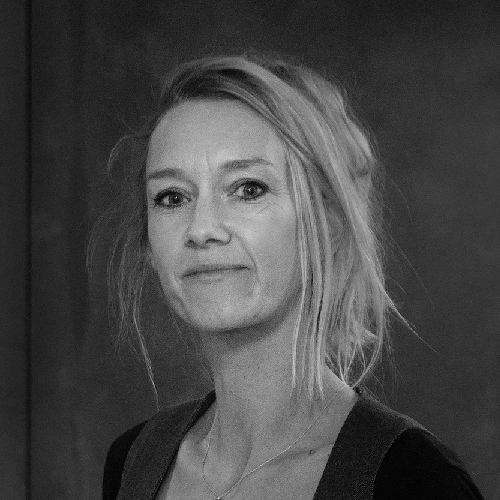
Tina Askanius is a research consultant for DeCode/M. She is Associate Professor in the School of Arts and Communication at Malmö University, Sweden. She holds a PhD in media and communication studies from Lund University, Sweden. She has written and published extensively on the relationship between social movements and social media in the context of social justice movements and more recently also ultranationalist and neo-Nazi movements.

Thomas Tufte is a research consultant for DeCode/M. He is Professor, Director of Institute for Media and Creative Industries, Loughborough University London (2018-). Senior Research Associate at the University of Johannesburg (2013-). Thomas Tufte holds an MA in cultural sociology (1989) and a PhD in Communication (1995). His research has evolved around the relation between media, communication, citizen empowerment and social change; health communication, in particular, HIV/AIDS prevention; media and globalization; storytelling, TV-fiction (telenovelas) and their strategic use to articulate social change (edutainment).

Victor Marí is a research consultant for DeCode/M. He has received a Bs. degree in Information Sciences, with a speciality in Audiovisual Communication from the University Complutense of Madrid in 1993, an MS (2005) and a PhD. (2009) in Communication Sciences from the University of Seville. He is an Associate Professor in the area of Audiovisual Communication and Advertising at the University of Cadiz from 2005 to present. Victor. Marí is the coordinator of the research group “Communication and Digital Citizenship” and Editor of Journal Commons. He has been a visiting scholar in leading international centres, such as the University of Roskilde ( Denmark), under the supervision of Professor Thomas Tufte, the University of Bordeaux-3 (with Professor Jean-Jacques bChèval), and the Center for Social Studies (CES) of the University of Coimbra (Portugal). He is also the author of several books and numerous research articles published in national and international field magazines.
Fellows

Ana Margarida Coelho is a Communication Sciences PhD Student at Catholic University of Portugal, with funding from Fundação para a Ciência e Tecnologia (ref.: 2020.05531.BD). Her PhD thesis investigates the influence of post-feminism on Portuguese digital content creators, specifically youtubers. She holds a Masters degree in Film (LCC/UAL), a Post-graduate course in Communication and Content Marketing (FCH/UCP) and a Bachelor in Communication Sciences (FCSH/NOVA). She participated on SOPCOM (2019) as a co-author with an article about mummy influencers, and was offered a grant for young scholars to participate in the ECREA conference in 2021.

Catarina Silva has studied between Portugal and France, under the Coimbra-Bordeaux Integrated Course (FEUC / Sciences Po-Bordeaux), having a double bachelor in International Relations and Political Sciences. During her master’s degree in Studies of Peace, Security and Development, she flew to Colombia to do an internship in a social company and fieldwork for the purpose of her thesis. In Coimbra, she actively participates in the media collective Mundus and she is engaged in several sociocultural projects. Her main research interests are studies of peace and conflict, militarized identities, gender studies, political economy and social and solidarity economy.
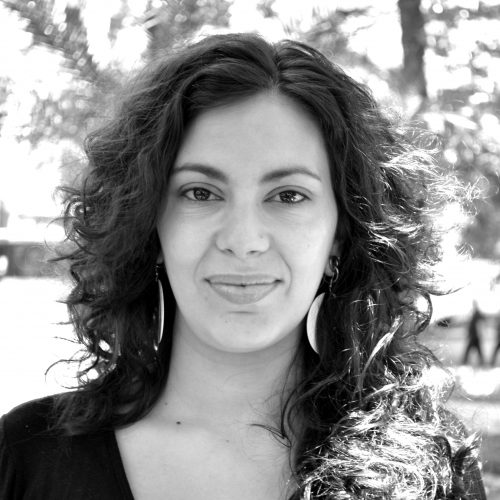
Linda Cerdeira, a women's rights activist and mother of 2, PhD candidate in Feminist Studies at Coimbra's University (Portugal), graduated in International Relations and specialized in Human Rights, has been collaborating with Promundo since 2013, currently she's the institution's Program Coordinator in Portugal. With a background of 15 years of experience in sociocultural projects in Portugal and Brazil, she is a specialist in the development, monitoring and evaluation of transformative gender methodologies.
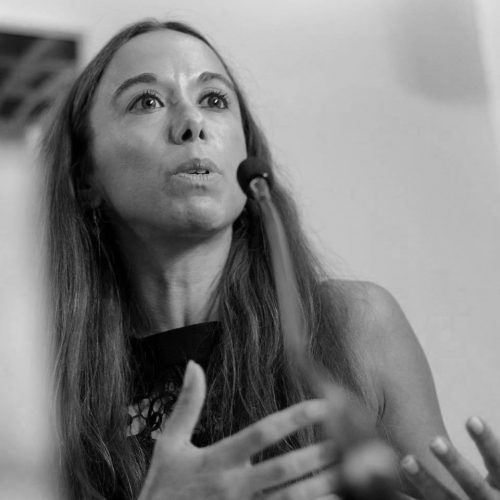
Sara Araújo holds a PhD in ``Law, Justice and Citizenship in the 21st Century``, with a thesis on legal pluralism and Epistemologies of the South. She was part of the coordinating team of Project Alice - Strange Mirrors Unsuspected Lessons (BS Santos ERC Advanced Grant), which has been transformed into a Research Programme in Epistemologies of the South. She was part of the Permanent Observatory for Portuguese Justice (2003-2005), and has maintained her collaboration in research and training activities (UNIFOJ). She was a member of the team of researchers at the Judicial Training Centre of Mozambique (2005-2006) and an associate researcher at the Centre for African Studies at the Eduardo University Mondlane (2008-2010). She is co-coordinator of the Epistemologies of the South Summer School. She is part of the collective that coordinates the Popular University of Social Movements in Europe and is one of the promoters of the Popular University Commitment and Art (UPEA), a project of ecology of knowledges in gestation and one of the strategic wagers for the future of CES. She organised a large number of scientific events and as part of the challenges posed by the proposal of the Epistemologies of the South, she developed multiple activities combining science, art and knowledges born of social struggles (concerts, concert-conferences, ecologies of knowledges on stage, exhibitions, UPMS workshops, forums, Paulo Freire tents, among others). Her research interests include legal and State pluralism, access to justice, Epistemologies of the South and non-extractivist methodologies.

Tiago Rolino is a Law Graduated from the Universidade Católica Portuguesa and was a lawyer from 2003 to 2017. He is a Junior Researcher at the Centre for Social Studies and a Researcher of the Portuguese team of EQUI-X - Promoting Innovative-strategies Addressing the Construction of Gender Identities and Engaging Men and Boys in Non-violent Models of Masculinity project and Promundo. Since February 2019, he has also been part of the Portuguese team (from CES) which coordinates the project PARENT - Promotion, Awareness Raising and Engagement of men in Nurture Transformations. He is part of the statutory bodies of the Associação Projeto Criar, an organization that provide services of legal, psychological and social nature to women, children, youth and families who are acting offended/the crime processes, civil, tutelary educational councils and in the promotion and protection of children and young people in danger; particularly when they are victims of sexual abuse, child abuse, domestic violence and trafficking in human beings, where he also collaborates as a volunteer.


